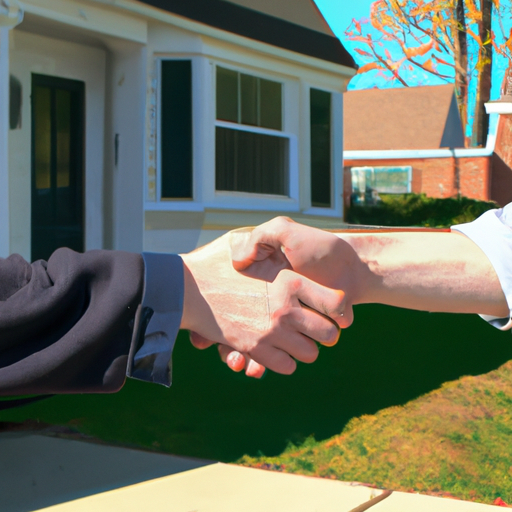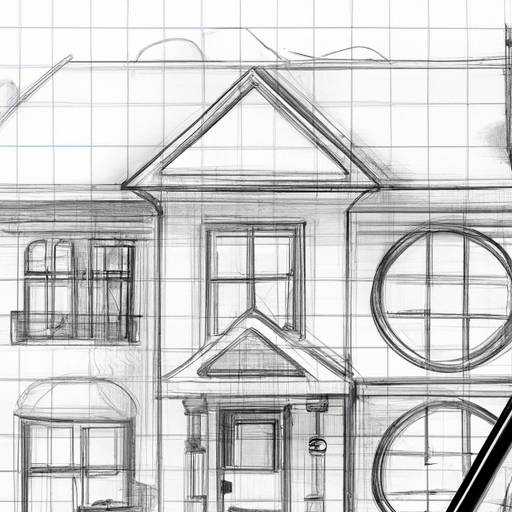This section of the article outlines the responsibilities of both landlords and tenants in a rental agreement, stressing the importance of understanding them before signing a lease. It also provides tips for preparing a rental property for tenants and discusses how to prepare a home for sale to maximize its value.
Are you considering renting a home? Whether you’re a tenant or a landlord, understanding the responsibilities that come with renting is essential for a smooth and successful experience. In this comprehensive guide, we will explore the crucial aspects of tenant and landlord responsibilities, ensuring that you are well-prepared before making any rental agreements. From preparing your home for rent to maximizing its value and even selling your home, this article covers it all. So, whether you’re a tenant looking for a new place to live or a landlord seeking to maximize your property’s potential, keep reading to discover valuable tips and insights.
- 1. “Understanding Tenant and Landlord Responsibilities: A Comprehensive Guide to Renting a Home”
- 2. “Preparing Your Home for Rent: Essential Steps for Landlords and Tenants”
- 3. “Maximizing Value: Tips for Selling Your Home and Preparing for the Market”
1. “Understanding Tenant and Landlord Responsibilities: A Comprehensive Guide to Renting a Home”

Understanding Tenant and Landlord Responsibilities: A Comprehensive Guide to Renting a Home
Renting a home can be an exciting and fulfilling experience, but it also comes with a set of responsibilities for both tenants and landlords. Before signing a lease agreement, it’s crucial to have a clear understanding of these responsibilities to ensure a smooth and harmonious living arrangement. This comprehensive guide aims to provide you with the necessary information on tenant and landlord responsibilities, helping you navigate the world of renting with confidence.
1. Tenant Responsibilities:
As a tenant, there are several key responsibilities you should be aware of:
a) Paying Rent: One of the primary obligations of a tenant is to pay rent on time. It is essential to understand the terms of your lease agreement, including the due date, payment method, and any late fees.
b) Taking Care of the Property: Tenants are responsible for maintaining the property’s cleanliness and ensuring it remains in good condition. This includes promptly reporting any maintenance issues or damages to the landlord.
c) Following Rules and Regulations: It is important to abide by the rules and regulations set forth by the landlord or property management. This may include restrictions on pets, noise levels, or smoking.
d) Respecting the Neighborhood: Being a good tenant also means being respectful to the neighbors. Avoid excessive noise, maintain cleanliness outside the property, and adhere to parking regulations.
2. Landlord Responsibilities:
Landlords also have a set of responsibilities to ensure a safe and habitable living environment for their tenants. These responsibilities include:
a) Maintaining the Property: Landlords are responsible for ensuring that the property meets all health and safety standards. This includes addressing any necessary repairs, maintaining common areas, and providing essential utilities.
b) Respecting Tenant Privacy: Landlords must respect their tenants’ privacy rights and provide proper notice before entering the rental property, except in emergency situations.
c) Returning Security Deposits: When a tenancy ends, landlords are typically responsible for returning the tenant’s security deposit within a specified timeframe and providing an itemized list of any deductions.
d) Resolving Disputes: Landlords should be responsive to tenant concerns and work towards resolving any disputes that may arise during the tenancy.
Understanding these responsibilities is crucial for both tenants and landlords to maintain a positive and mutually beneficial rental relationship. It is recommended to thoroughly review the lease agreement, including all terms and conditions, to ensure a clear understanding of the rights and obligations of both parties.
By following these guidelines and fulfilling your responsibilities, you can enjoy a harmonious and hassle-free renting experience.
2. “Preparing Your Home for Rent: Essential Steps for Landlords and Tenants”

When it comes to renting a property, both landlords and tenants have certain responsibilities. For landlords, preparing the home for rent is crucial to attract potential tenants and ensure a smooth rental experience. Similarly, tenants also have a role to play in maintaining the property and ensuring its cleanliness and functionality. Here are some essential steps that both landlords and tenants should take when preparing a home for rent.
1. Clean and Declutter: Before showcasing the property to potential tenants, landlords should thoroughly clean the entire house. This includes deep cleaning carpets, scrubbing floors, and ensuring all surfaces are spotless. Additionally, removing any clutter or personal items will help tenants envision themselves in the space.
2. Make Necessary Repairs: It is the landlord’s responsibility to ensure that the property is in good condition before renting it out. This includes fixing any plumbing issues, repairing broken appliances, and addressing any structural damage. Tenants should also inform their landlords of any maintenance concerns they notice during their tenancy.
3. Check Safety Features: Landlords must ensure that the property meets all safety requirements. This includes installing smoke detectors, carbon monoxide detectors, and fire extinguishers. Tenants should regularly check these safety features and notify the landlord if any replacements or repairs are needed.
4. Landscaping and Outdoor Maintenance: For properties with a garden or outdoor space, landlords should ensure that it is well-maintained. This includes mowing the lawn, trimming hedges, and removing any debris. Tenants should also contribute to maintaining the outdoor area by watering plants and keeping it tidy.
5. Document the Property’s Condition: Before a tenant moves in, both parties should conduct a thorough inspection of the property and document its condition. This includes taking photographs and noting any existing damages or issues. This will help avoid disputes regarding the property’s condition and deposit deductions at the end of the tenancy.
6. Set Clear Expectations: Landlords should provide tenants with a comprehensive list of rules and expectations for living in the property. This may include guidelines for noise, pet policies, and maintenance responsibilities. Tenants should carefully review and adhere to these expectations to maintain a positive rental relationship.
By following these essential steps, both landlords and tenants can ensure that the property is in optimal condition before renting. This not only attracts potential tenants but also sets the foundation for a successful and harmonious rental experience.
3. “Maximizing Value: Tips for Selling Your Home and Preparing for the Market”

Maximizing Value: Tips for Selling Your Home and Preparing for the Market
When it comes to selling your home, preparation is key. By taking the time to properly prepare your home for the market, you can increase its value and attract potential buyers. Here are some valuable tips to help you get started:
1. Declutter and Depersonalize: Before putting your home on the market, it’s essential to declutter and depersonalize the space. Remove any personal items, such as family photos or personal décor, as this allows potential buyers to envision themselves living in the space. Additionally, decluttering helps create a more spacious and inviting atmosphere.
2. Enhance Curb Appeal: First impressions matter, and the exterior of your home is the first thing potential buyers will see. Invest some time and effort into improving your home’s curb appeal. Trim the lawn, plant flowers, and ensure that the exterior is well-maintained. A fresh coat of paint on the front door and a clean, welcoming entrance can make a significant difference.
3. Make Necessary Repairs: Take the time to address any necessary repairs and maintenance tasks before listing your home. This includes fixing leaky faucets, repairing broken tiles, or replacing outdated fixtures. By ensuring your home is in good condition, you can avoid any potential red flags for buyers and increase its value.
4. Stage the Space: Properly staging your home can make a significant impact on potential buyers. Consider rearranging furniture to create a more open and spacious layout. Neutralize colors and add tasteful décor to create a warm and inviting atmosphere. Hiring a professional stager can also be a worthwhile investment to showcase your home’s best features.
5. Highlight Key Features: Identify and highlight your home’s unique selling points. Whether it’s a spacious backyard, a newly renovated kitchen, or a stunning view, make sure these features stand out. Showcase them through professional-quality photographs and emphasize them in your listing description.
6. Clean and Freshen Up: A clean and fresh-smelling home is more likely to attract potential buyers. Deep clean every room, paying attention to details such as carpets, windows, and bathrooms. Consider freshening up the space with a neutral coat of paint and adding pleasant scents through candles or air fresheners.
7. Price it Right: Setting the right price for your home is crucial. Conduct thorough research on the local real estate market and consult with a professional real estate agent to obtain a comprehensive understanding of the current market conditions. Pricing your home too high can deter potential buyers, while pricing it too low may lead to undervaluing your property.
In conclusion, understanding tenant and landlord responsibilities is crucial before renting a home. This comprehensive guide has provided essential information for both parties, outlining the steps needed to prepare a home for rent and maximize its value. Whether you are a landlord getting your property ready for the market or a tenant looking to rent a home, following these guidelines will ensure a smooth and successful renting experience. By knowing what to do at home, what to make at home, and what to sell from home, you can make the most of your rental property or find the perfect home to rent. Additionally, if you are considering selling your own home, the tips provided in this article will help you prepare and get the best possible price. Remember, there are always things you can do at home and in the garden to improve your living space and increase its appeal to potential buyers or renters. So, start preparing your home for sale or rent today and enjoy the benefits of a well-maintained and attractive property.

